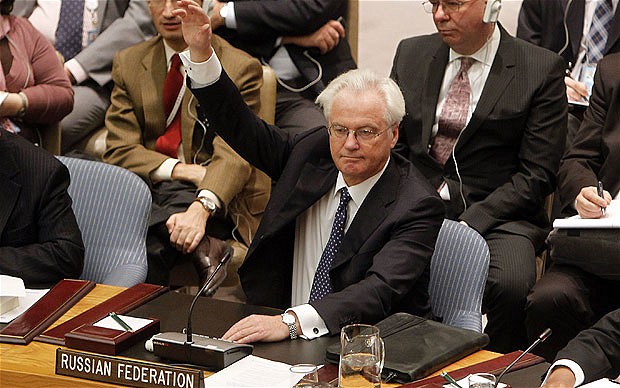
In a series of rather dramatic showdowns between several Western powers and the BRICS in the UNSC in October 2011 and February 2012, the US Ambassador to the UN Susan Rice professed to be “disgusted” by Russia’s and China’s decision to veto a draft resolution that condemned the Syrian crackdown on protesters. In a more diplomatic moment, she commented on Brazil’s, India’s and South Africa’s behavior in the UNSC by saying that she had “learned a lot and, frankly, not all of it was encouraging.” Along with her, analysts across the world criticized emerging powers for their lack of support for the resolutions against Syria.
Many analysts are now wondering whether 2013 will bring another stalemate. The general opinion seems to be that Libya was an exception, while Syria was the rule – as a consequence, we will see the West clash with the BRICS whenever trouble arises – may it be the continued conflict in Syria, or a new one in Sudan, the Central African Republic or Burma. According to these analysts, UNSC-sanctioned humanitarian interventions in the name of R2P are a thing of the past.
A smaller group of observers interprets the past two years very differently. For them, Libya was the rule, and Syria was the exception. According to this reading, R2P is doing quite well. Yes, in some instances the UN Security Council will not be able to agree on how to deal with a given situation – like Syria. But they point out that in most cases, such as South Sudan, emerging powers and China are far more constructive than is generally believed.
The truth is that R2P works far more often nowadays than not. In addition, it is highly uncertain in how far Russia’s and China’s veto in February 2012 changed the course of history – Western powers are quite unlikely to intervene militarily irrespective of what Russia and China say.
Finally, one may point out that rising powers actually play a constructive role as they are able to slow some Western countries’ interventionist urges to some degree. Not even Ivo Daalder, who called Libya a “model intervention”, will disagree that Brazil’s, India’s and South Africa’s grievances about how the intervention was conducted, were extremely useful. While Brazil sadly aborted the promotion of the ‘Responsibility While Protecting’ concept, emerging powers’ critiques led to very important discussions about an intervention’s accountability, transparency, and the debate about regime change. R2P is no trivial matter, and it would be deeply worrisome if interventions took place without a fierce debate beforehand.
Syria may indeed turn out to be the exception, after all, and R2P is in better shape than many believe.
Read also:
Book review: “Global Politics and the Responsibility to Protect” by Alex J. Bellamy
West Africa’s contribution to R2P
Photo credit: Jason DeCrow/AP








